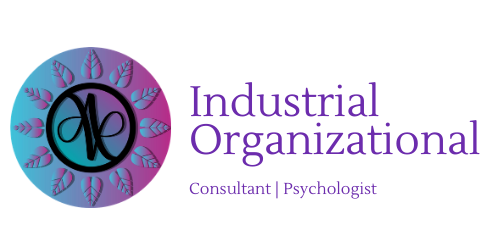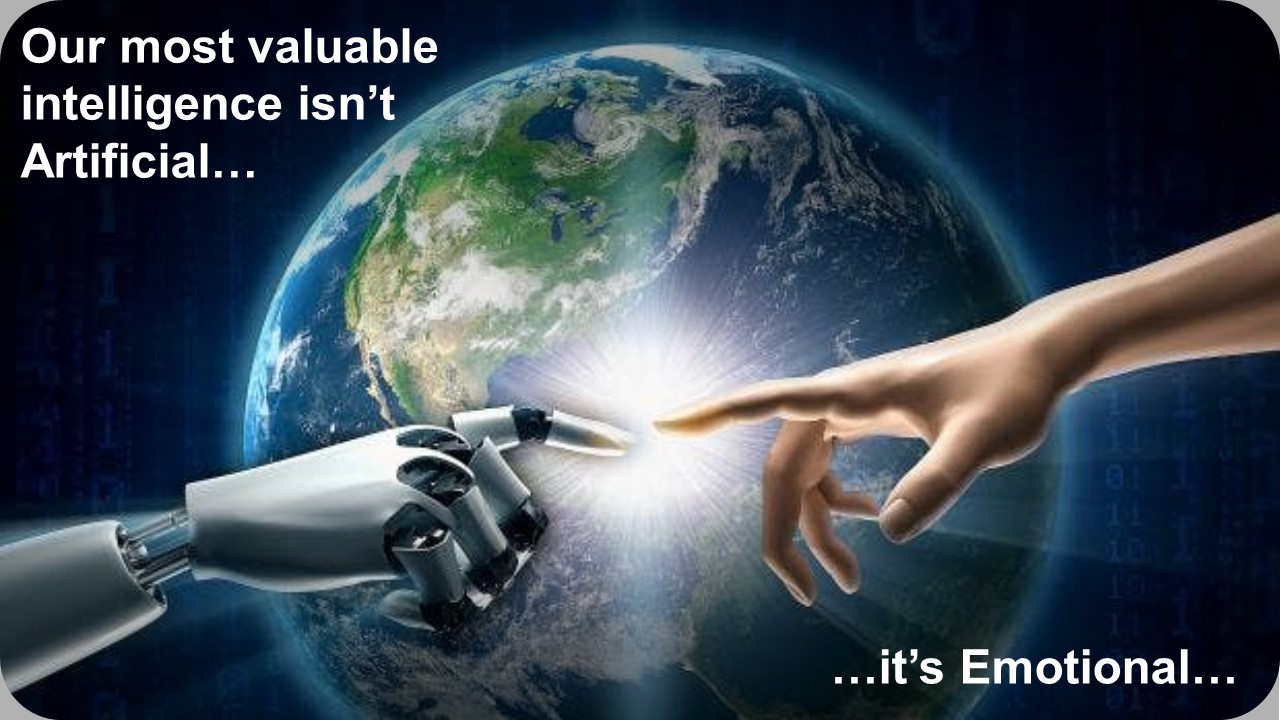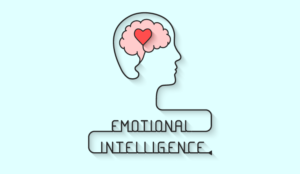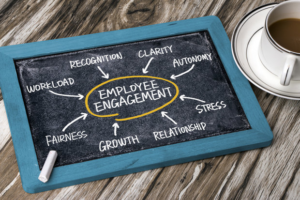As the programmes relating to Artificial Intelligence (AI) emerge, many have expressed apprehension about the possible negative impact it may have on our environment and daily lives. Contrary to the general perception, jobs are not owing to artificial intelligence (AI) because emotional intelligence (EI) is a critical skill that humans possess, and that supersedes AI. While machines excel at performing tasks efficiently, they lack the ability to understand and respond to human emotions. This results in EI being increasingly important in industries that rely on human interaction, creativity and adaptability. EI enhances human interactions, which is vital in industries like healthcare, education and customer services. Effective communication, building relationships, and understanding others’ perspectives are crucial for success in these fields and others.
But what is artificial intelligence or AI?
Artificial intelligence is a potentially world-changing technology. According to research studies, it could help cure cancers, control autonomous cars, and augment human intelligence. Or it could lead to a robot apocalypse and the downfall of humanity. AI simply means software used by computers to mimic aspects of human intelligence. For example, a program that recommends what you should read based on books you’ve bought or a robot vacuum that has a basic grasp of the world around it.
Despite the changes that will occur and the needs that will be fulfilled with AI, the need for human interaction is still critical for an experience that will involve our feelings and emotions. The world of work has evolved significantly. Emotional intelligence (EI) has always been important and continue to be focused on by organizations as it has proven to have significant impact on organizational performance. The cultivating of the competencies that underpin emotional intelligence will be increasingly significant as automation and AI replaces all, or part of many jobs, and humans in the workplace become increasingly differentiated by their unique human characteristics and skills. Knowledge workers still have boundaries, but we are no longer fixed to a production line that moves at a set speed, overseen by a foreman. Knowledge work is complex, dynamic, less hierarchical and team-based. We need to nurture human assets and consider how skills and competencies such as emotional intelligence, management, leadership, operating culture, skills and processes work individually and together to generate value.
In order to be efficient and effective, to enhance our wellbeing and performance, it is important for us to learn to focus on developing the capacity to transfer our attention from ourselves, to the impact we want to have on others.
What is emotional intelligence or EI? According to research studies. emotional intelligence refers to the abilities to recognize and regulate emotions in ourselves and in others. According to Daniel Goleman, psychologist and author of the book “Emotional Intelligence”. there are five key competencies – Self-awareness. Self-regulation, Motivation, Empathy, and Social Skills. If you are self-aware, you always know how you feel, and you know how your emotions and your actions can affect the people around you. Being self-aware, especially in a leadership role, also means having a clear picture of your strengths and weaknesses, and it means behaving with humility. Individuals who regulate themselves effectively rarely verbally attack others, make rushed or emotional decisions, stereotype people, or compromise their values. Self-regulation is all about staying in control. This element of emotional intelligence, according to Goleman, also covers an individual’s flexibility and commitment to personal accountability. Motivation is an internal process. Motivation is a condition inside us that desires a change, either in the self or the environment. According to research studies, when we tap into this well of energy, motivation endows the person with the drive and direction needed to engage with the environment in an adaptive, open-ended, and problem-solving sort of way. The essence of motivation is energized and persistent goal-directed behavior. When we are motivated, we move and take action. Self-motivated individuals work consistently toward their goals, and they have extremely high standards for the quality of their work. For leaders, having empathy is critical to managing a successful team or organization. Individuals with empathy have the ability to put themselves in someone else’s situation. They help develop the people on their team, challenge others who are acting unfairly, give constructive feedback, and listen to those who need it. If you want to earn the respect and loyalty then show you care by being empathetic.
Individuals who do well in the social skills element of emotional intelligence are great communicators. They are open to hearing bad news as well as good news; they are expert at getting their persons to support them. Individuals who have good social skills are also good at managing change and resolving conflicts diplomatically. They are rarely satisfied with leaving things as they are, but they do not allow everyone else to do the work; they set an example with their own behavior.
As machines become more intelligent and automated, human skills like EI become increasingly valuable – AI needs EI. The studying of AI has revealed the absence of self-awareness, self-management, empathy, motivation and social skills. By developing EI, one can enhance human interactions, foster creativity, promote resilience and adaptability, and contribute to unbiased AI. With AI integration continuing, it is important to remember that EI is a unique quality that sets us apart as humans, safeguarding our jobs from the feared encroachment of automation processes.




